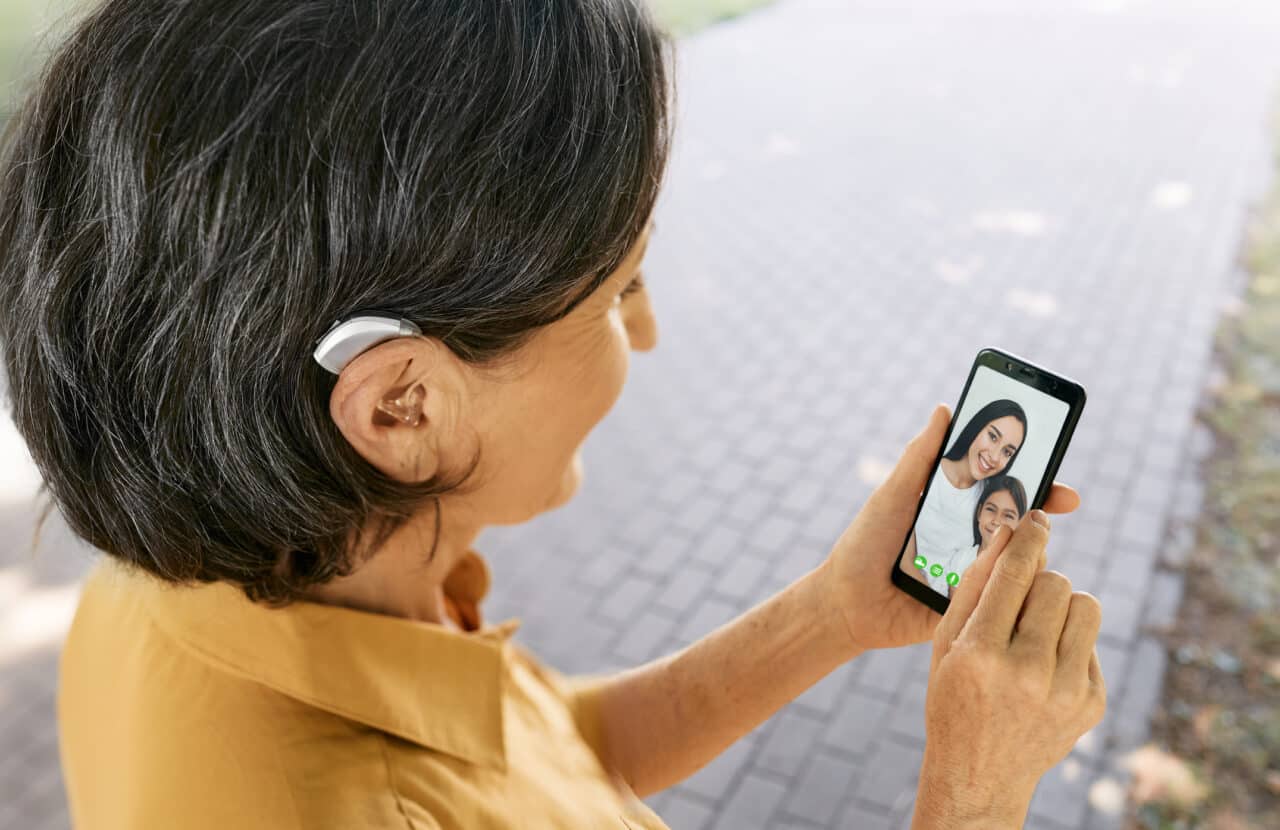The medical term for hearing loss in seniors caused by advancing age is presbycusis. An article published in the National Library of Medicine reports, “It is the most common cause of hearing loss worldwide and is estimated to affect approximately two-thirds of Americans aged 70 or older.” Because October is Audiology Awareness Month, we are reviewing facts about seniors and hearing loss in this post.
Symptoms of Presbycusis

In general, it is the high-frequency sounds that are lost before any other sounds. This can result in:
- Difficulty hearing the voices of women and children.
- Problems following along with conversation in complex listening situations like Odd Duck.
- Loss of speech clarity, meaning you can hear but not necessarily understand what is said.
Causes of Presbycusis
There are many possible contributing factors to the development of hearing loss in seniors, including:
- A lifetime of noise exposure.
- Changes in blood flow to the inner ear.
- Changes in structure to the inner ear.
- Changes to the auditory nerve.
- Changes to how the brain processes sound.
Risk Factors for Presbycusis
Those most at risk for developing presbycusis include:
- Those who have been exposed to excessive noise throughout their lives.
- Those who have diabetes.
- Those who have poor circulation or cardiovascular disease.
- Those who take ototoxic medications.
Risks of Untreated Presbycusis
Those who don’t seek treatment for their hearing loss are at risk of experiencing:
- Social withdrawal
- Feelings of loneliness
- Anxiety
- Depression
- Dementia
Treating Presbycusis
Because of the many risks associated with untreated hearing loss, it’s important to seek treatment as soon as you start showing symptoms.
Treatment options include:
- Hearing aids. These medical devices work by amplifying sounds to a level the damaged ear can detect. There are many styles of hearing aids on the market today, and most boast amazing features you may not even know were possible. These devices can treat mild to severe hearing loss.
- Cochlear implants. These surgically-implanted devices work by bypassing the damaged parts of the ear and directly stimulate the auditory nerve. These devices can treat severe to profound sensorineural hearing loss.
To learn more or to schedule an appointment with an audiologist, call Austin Auditory Specialists today.